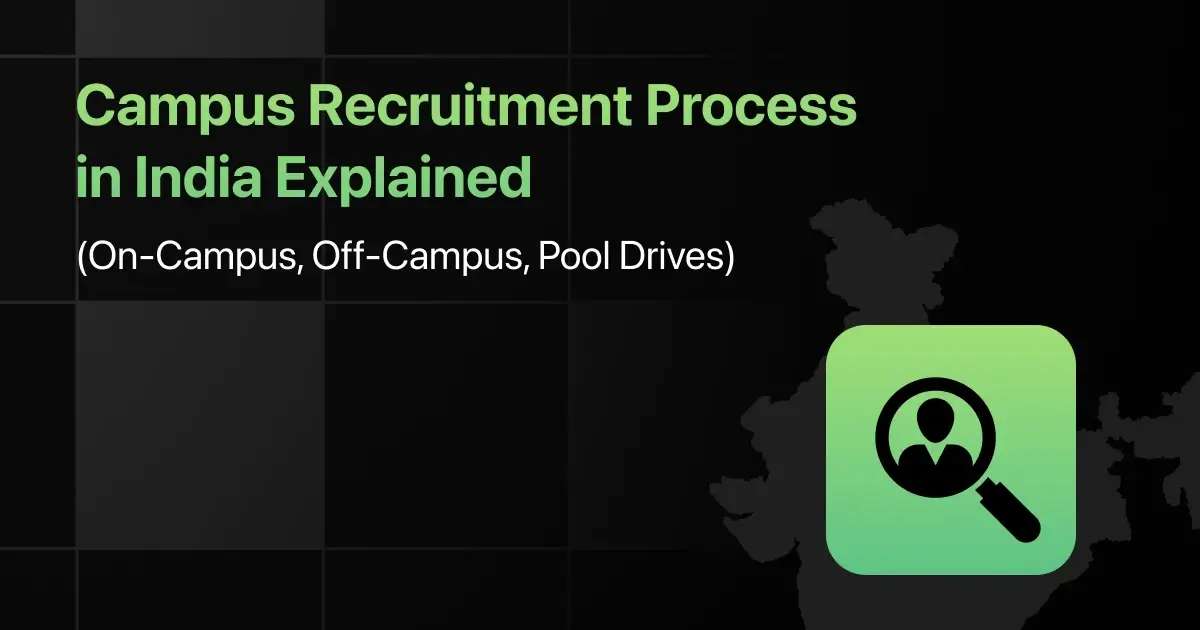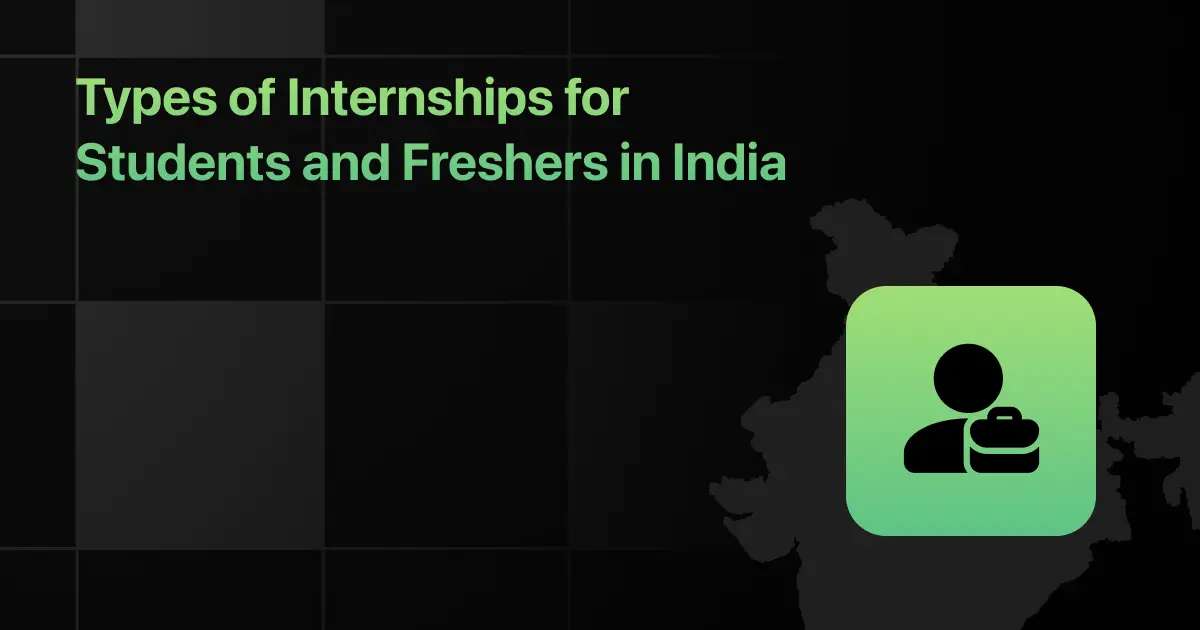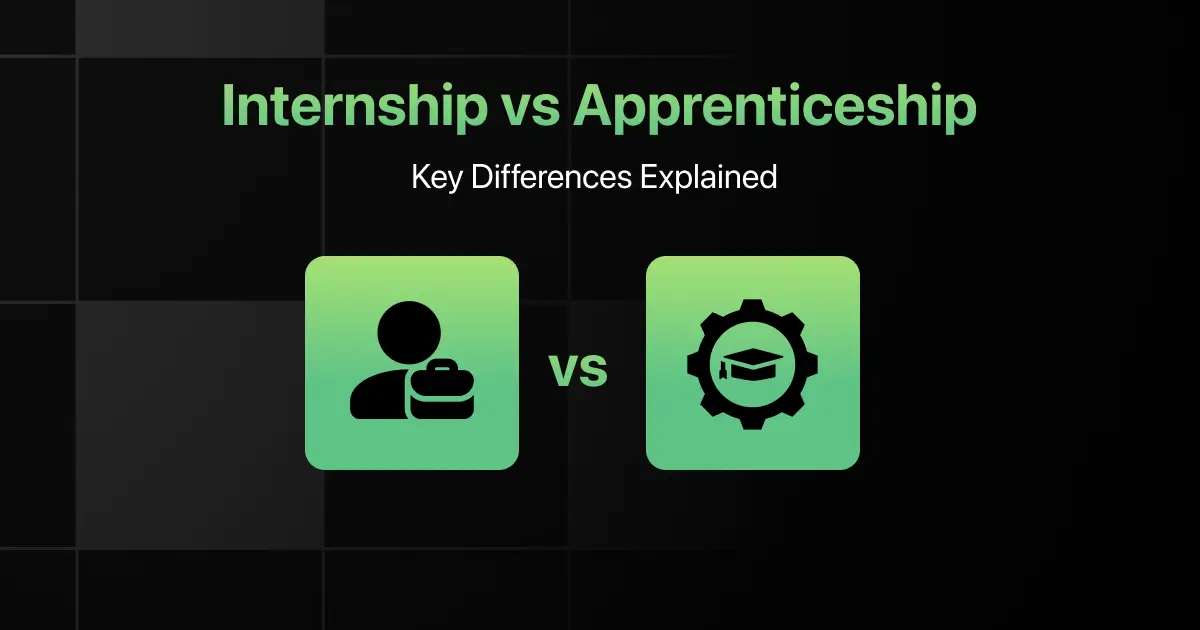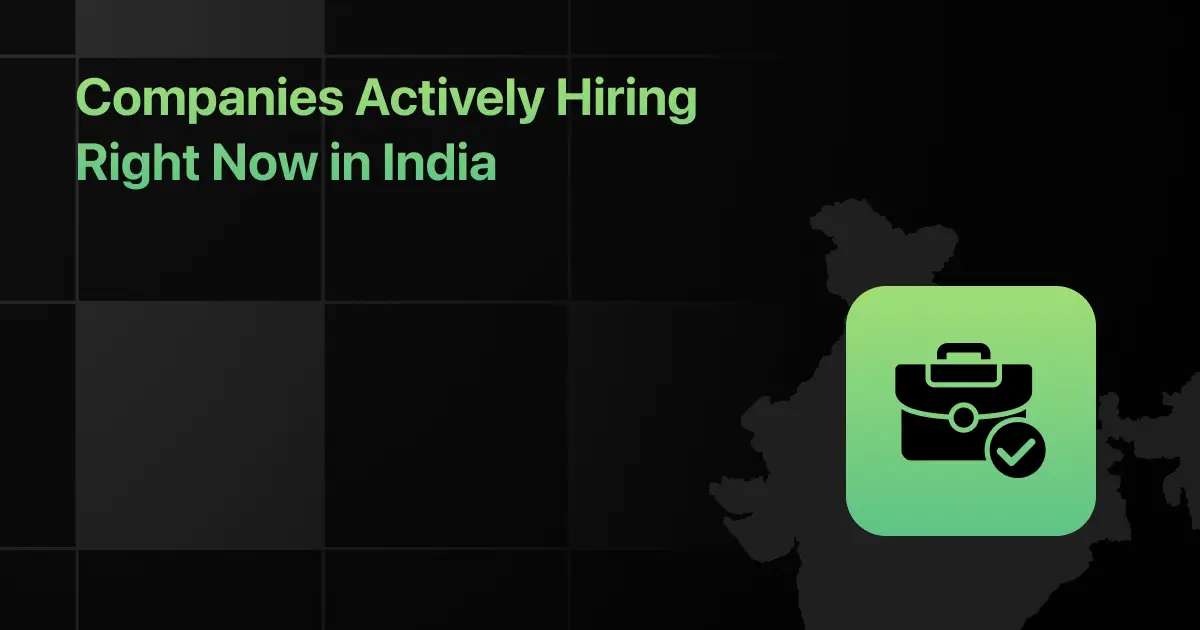Off-Campus Recruitment Process in India

Did you know that the hiring intent for freshers in India has risen to 74% from the previous quarter? (TeamLease EdTech Career Outlook Report) What’s even more interesting is how these jobs are being filled. A bigger proportion of freshers today get jobs via off-campus recruitments. A report by ‘The Times of India’, 2025, says that almost 40% of entry-level hiring in India’s Global Capability Centres (GCCs) is now happening off-campus routes.
Companies are clearly setting their focus toward candidates who take the initiative in building their profiles online and applying directly. This means you no longer have to wait for your college to host placement drives or be dependent on the limited list of visiting recruiters.
Off-campus recruitment process in India gives you the opportunity to approach top companies at your discretion: applying on your own, preparing strategically, and proving your skills where it really matters. This complete 2025 step-by-step guide walks you through everything: how the process works, where to find opportunities, and how to get ready so you can confidently move from “fresher” to “hired.”
Key Highlights (2025)
- Off-campus hiring in India has grown 18–22% in 2025, led by IT, startups, and GCCs.
- 82% companies prefer skill-based hiring in 2025, not just CGPA.
- The off-campus process usually includes resume shortlist → online test → technical + HR interview → offer letter.
- Platforms like LinkedIn, Naukri, Indeed, Wellfound, and company career pages are the main hiring channels.
- Freshers with strong DSA, communication skills, and project portfolios have the highest selection chances.
What is Off-Campus Recruitment?
Off-campus recruitment refers to securing a job without relying on your college’s placement cell. You apply directly to the companies through
- Job portals or LinkedIn
- Employee Referrals,
- Official career pages
Instead of waiting for the recruiters to come to your campus. It’s something done by taking initiative on your own: searching for opportunities, getting ready for tests, and going to interviews.
With every company now conducting virtual or online hiring drives to reach out to a more diverse pool of talent, this trend has become popular in India, especially among freshers in 2025. It’s an opportunity for them to showcase their skills, gain exposure, and secure placements in top firms, even if their college is not part of a large recruitment network.
Off-Campus Recruitment Process in India – Step-by-Step Guide
Before discussing applications, understanding the off-campus recruitment process in India is essential. While each company has its own structure, there is a frequently similar format prevalent in the off-campus recruitment process, from eligibility criteria to final offer letters. This can be shown step by step as follows:
Step 0: Pre-Stage Preparation and Eligibility
When you submit applications, you should check that you meet their eligibility criteria: usually, an academic performance of 60% and above; no active backlog(s); and a relevant major for the job you are applying for.
At this stage, you should:
- Build your resume, ensuring that you highlight your projects, internships, and any skills you have.
- Review aptitude, coding, and communication fundamentals.
- Set up or update your LinkedIn and GitHub profiles.
Need a resume in 10 minutes? Use any free resume builder tool and customize it for each job.
Step 1: Looking for the Right Opportunities
- Keep checking out the official career pages of TCS, Infosys, Wipro, Accenture, or Deloitte, along with LinkedIn, Naukri, Cutshort, or Instahyre.
- Many companies will also share off-campus drives on their social handles, so it is important to stay active and set up job alerts.
Step 2: Applying to Companies
- When you find something you are interested in, make sure you apply thoroughly.
- Ensure that your resume, portfolio links, and information are up to date.
- Some companies also hire by referrals, where you can ask staff to refer you for either or both speed of application and speed of shortlisting.
Step 3: Online Assessment Tests
If you have been shortlisted after the application, you will get an invitation to an online test. This usually includes:
- Aptitude and logical reasoning
- Coding or technical questions in online interviews (for the CSE/IT roles).
- A section on English proficiency or communication.
This round is critical because it is often enough of a significant filter.
Want to practice aptitude, logical reasoning, and coding tests? Check out PlacementPreparation.io’s Mock Tests for Quant, LR, Verbal, and Coding.
Step 4: Technical Interview(s)
- If you manage to get through the test, you may end up going through one or two technical interviews.
- Prepare to address programming languages, tools, projects, and problem-solving approaches.
- In a non-technical role, the focus will move to these attributes, as well as analytical skills and scenario-based questions that will assess your reasoning and thought process.
Step 5: HR Interview
- The final stage will examine your suitability by checking your personality, attitude, and fit with the company culture.
- You may be posed some questions – your strengths, your salary expectations, or your willingness to relocate.
- Be yourself, be confident, and be consistent with what’s on your resume.
Step 6: Offer Letter and Onboarding
- Depending on the selection, an offer letter will be sent to you by email, along with a background verification check and recruitment formalities.
- If applicable, some companies may assign a short online training before your official start date.
Pro-tip: Continue applying to off-campus recruitment is much more competitive than campus drives, but persistence will always pay off.
Where to Find Off-Campus Job Opportunities?
There is no need for anyone to wait for college placements; you can still have off-campus hiring opportunities on plenty of platforms and hiring channels. Here’s where to start your search:
1. Company Career Portals
- Always check the official career pages of top companies like TCS, Infosys, Wipro, HCL, Accenture, Deloitte, Cognizant, and Capgemini.
- Most IT giants announce off-campus drives, referral programs, or fresher hiring batches directly on their websites.
- Set up email alerts or bookmark their pages for updates.
Example:
TCS Careers: https://www.tcs.com/careers
Infosys Careers: https://careers.infosys.com
Wipro Careers: https://careers.wipro.com
2. Job Portals For Freshers
Explore trusted job listing platforms that regularly feature fresher roles.
Top sites to check:
- LinkedIn Jobs are for professional networking and referral-based hiring.
- Naukri.com is for mass hiring and company alerts.
- Indeed has verified listings for entry-level and contract roles.
- Cutshort is a Tech-oriented platform for startups and MNCs.
- Internshala is for internships that can lead to full-time jobs.
Tip: Apply early; fresher openings fill up fast once posted.
3. Company Off-Campus Drives & Hiring Challenges
Many MNCs and startups organize national-level drives or hackathons to identify fresh talent.
Examples include:
- TCS NQT (National Qualifier Test)
- Infosys InfyTQ (Sample Q&A)
- Wipro Elite NTH
- HackerRank / HackerEarth Challenges
Performing well in these tests can directly land you interviews.
4. LinkedIn Networking
- Follow HRs, recruiters, and company pages, many post openings before they go public.
- Join LinkedIn groups focused on fresher hiring or tech jobs in India.
- Engage meaningfully with posts (like, comment, or share) to increase visibility.
5. Employee Referrals
- Referrals are one of the most effective ways to get shortlisted.
- Connect with company employees through LinkedIn or alumni networks.
- Politely ask for a referral, share your resume, and why you’re a good fit.
- A referral often fast-tracks your application and increases your chances of getting noticed.
6. Placement Preparation Platforms
- Use online communities and preparation portals that post verified off-campus drives.
- Popular choice includes: PlacementPreparation.io (Updated off-campus drive alerts and interview tips)
7. Social Media & Telegram Groups
Follow official company handles on Twitter, Instagram, and Telegram channels.
Many HRs share job openings or test registration links exclusively through these platforms.
Pro Tip: Combine all these sources, create a weekly checklist to apply on portals, check LinkedIn updates, and register for drives. Consistency brings results.
How to Apply for Off-Campus Placements?
Knowing where to apply is one thing, but how you apply will determine if your resume lands on a recruiter’s desk or ends up lost in a pile (it can be the same application with either outcome, depending on how you apply). Below is a breakdown of the step-by-step process to apply for off-campus placements properly, and hopefully successfully.
Step 1: Shortlist Target Companies
- Make a list of about 10–15 companies that align with your career goals, skills, or stream, and any other considerations.
- Check for eligibility criteria, CGPA, degree, or graduation year, to ensure you meet any standards to apply.
- Rank the companies by relevance of interest to your preferred domain (Software, Data, Marketing, Finance, etc.).
Tip: You may want to use a spreadsheet for tracking the application link, status, and deadline for each company.
Step 2: Regularly Visit Official Career Pages
- Figure out a way to visit the official tidy career portal of each of the companies you are considering, if I were to recommend it once a week.
- Look for dedicated fresher programs, e.g., TCS NQT, Infosys InfyTQ, Wipro Elite NTH, Accenture Associate Engineer Hiring, etc.
- Applying directly to the positions through the original company’s website adds authenticity and greater chances of receiving a faster response regarding progress.
Step 3: Create/Optimize Your Job Portal Profile
- Set up an account on trusted platforms – LinkedIn, Naukri, Indeed, and Cutshort.
- Make sure you complete your profile with a proper professional image, resume, and keywords (like Java Developer Fresher, Data Analyst Entry-Level, etc.).
- Set an email alert for terms like “off-campus fresher jobs.”
Pro Tip: Use location filters (like “India,” “Remote,” or your preferred city) to find jobs that suit your availability.
Step 4: Work Smart, not Just Fast
- Avoid sending multiple copies; personalize both your resume and your cover letter for each organization.
- Align your skills with the JD (Job Description) and specify relevant coursework or certifications.
- Provide links to your LinkedIn, GitHub, or portfolio when appropriate.
Step 5: Whenever Possible, Utilize Referrals
- Contact employees or alumni of the company for referrals.
- Keep your message brief and polite: identify yourself, state your college, and include your resume.
- Referrals increase your chances of being shortlisted by 2 to 3 times, especially for large companies.
Step 6: Prepare for Online Tests Immediately After Submitting Your Application
- Most off-campus drives include an aptitude test, reasoning test, or coding test a short time before the registration date.
- Practice similar questions on platforms like Placementpreparation.io or HackerRank.
- Be prepared for the online test link being sent to you on short notice, as it’s also common for companies to only give you 24 to 48 hours’ notice.
Step 7: Follow up professionally
- If you don’t hear within 2–3 weeks, follow up via email or LinkedIn.
- A simple, polite message to the recruiter will do, reiterating one’s interest in joining.
- Not being pushy means no more than one follow-up per role is needed.
Step 8: Keep Applying Consistently
- Consider applying for jobs a daily habit; if possible, commit 30-60 minutes a day.
- Keep a record of each job you apply to and update your sheet periodically.
- Rejections are normal; however, make use of the feedback given to improve your resume or interview preparation.
Bonus Tip: Many companies conduct off-campus drives in cycles, i.e., every 3–6 months.
How to Prepare for Off-Campus Recruitment?
Getting an off-campus placement involves smart planning, hard work, and skill enhancement. Below is a step-by-step preparation roadmap that a fresher should follow:
Step 1: Strengthen Your Basics
- Review your core subjects (for tech): Data Structures, Algorithms, OOPs, DBMS, and OS.
- For non-tech potential roles, review the basics of the domain and MS Excel, and communication skills.
- Use free resources (So, basically, YouTube channels, multi-purpose forums, HCL GUVI tech courses, and professional workshops in courses)
Step 2: Practice Aptitude & Reasoning
- Spend 30-45 minutes per day on aptitude, logical reasoning, and verbal ability.
- Take regular mock tests to enhance speed and accuracy.
- Find the area of weaknesses. Track your development over a period of time.
Step 3: Build a Strong Resume
- Make it simple, clear, and ATS-compliant (anything that is fancy will get lost in it).
- Mention key areas like Academic Achievements, summary of Projects, Internships, Certifications, etc.
- Use action statements (for example: Developed, Implemented, Led, etc). Never state anything false or stretch the truth.
Use the HCL GUVI Resume Builder to create a professional resume.
Step 4: Undertaking Projects & Internships
- Opt for practical, real-world projects that will best exhibit your abilities to employers.
- Attend hackathons, participate in open-source projects, or complete short internships.
- Post your submissions to GitHub or your portfolio website.
Step 5: Prepare For Interviews
- Research the frequently asked technical interview and HR interview questions.
- Use Glassdoor and YouTube to research company-specific interview preparation.
- Hold mock interviews with friends, family members, and mentors, or within trusted online communities.
- Practice your interviews, be clear, confident, and communicate well.
Related Guide: Campus Recruitment Process in India: Stages, Tips & Preparation Guide for Freshers
Step 6: Build Your Online Presence
- Keep your LinkedIn profile up-to-date, add certifications, projects, and awards as you earn them.
- Connect with recruiters, alumni, and professionals at your target companies.
- Follow company pages to ensure you are up-to-date on job openings.
- For tech students, keep a neat and up-to-date GitHub repository.
Step 7: Remain Consistent & Organized
- Track your applications in a spreadsheet (company name, date, role, status).
- Continue to update your resume and skills regularly.
- Be patient, off-campus hiring processes can run weeks or months, or longer.
- Do your best and continue to improve after every rejection.
Pro Tip: You should simulate a real-life interview, do mock interviews, and try to receive direct feedback. This will help you practice and conquer any nervousness before the actual interview.
Tailoring Your Resume for Off-Campus Applications
In off-campus recruitment, companies scan hundreds of profiles, so to get filtered though, you should have clean, skill-focused resume. Some tips to make your resume filtered out:
- Keep It One Page: Highlight only what’s relevant: skills, projects, and achievements.
- Use Strong Action Words: Replace “responsible for” with “developed,” “led,” or “built.”
- Show Real Skills: Add technical tools, certifications, and projects (even small ones).
- Add Keywords: Match your resume with the job role; recruiters use keyword filters.
- Quantify Results: Write “Built a project used by 200+ users” instead of vague lines.
- Avoid Fancy Templates: Stick to clean, professional designs that ATS can read easily.
Benefits and Challenges of Off-Campus Placements
Off-campus placements open doors to thousands of job opportunities beyond your college, but they also come with their own hurdles. Here’s a clear comparison to help you understand both sides:
| Benefits of Off-Campus Placements | Challenges of Off-Campus Placements |
|---|---|
| More Opportunities | Higher Competition |
| Flexibility in Choice | No Guaranteed Shortlisting |
| Multiple Rounds of Exposure | Lengthy Process |
| Skill-Based Selection | Less Guidance |
| Greater Learning Curve | Risk of Fake Job Posts |
Quick Tip: Always apply through official company websites or trusted job portals like LinkedIn, Naukri, or Indeed to stay safe and updated.
On-Campus vs Off-Campus vs Pool Drives
| Feature | On-Campus | Off-Campus | Pool Drive |
|---|---|---|---|
| Definition | Recruiters visit your college for placements | You apply directly to companies outside your college | Multiple colleges participate in a joint drive |
| Eligibility | Limited to your college students | Open to all freshers meeting the criteria | Students from participating colleges only |
| Opportunities | Few companies per campus | Larger pool of companies across India | Moderate, depending on drive size |
| Competition | Moderate | High | High |
| Selection | Company + college TPO guidance | Skill & performance based | Skill & performance based |
| Preparation Support | College arranged mock tests & workshops | Self-preparation needed | Minimal, depends on the organizing body |
| Flexibility | Low, limited slots | High, multiple applications possible | Medium, limited to the drive schedule |
Tips For Successful Campus Placements
The outcome of your placement comes from disciplined preparation, strategic planning, and daily consistency. Here are some simple and powerful tips to rise above the competition:
- Start Early: Begin preparation at least 6–8 months before graduation.
- Master Aptitude: Practice reasoning, quants, and English daily through mock tests.
- Build Real Skills: Learn tools like Python, SQL, Excel, or Power BI; work on mini-projects.
- Improve Communication: Practice interview answers aloud with clarity and confidence.
- Stay Updated: Follow company pages and job alerts for off-campus drives.
- Perfect Your Resume: Keep it short, skill-based, and project-focused.
- Network Smartly: Connect with recruiters, seniors, and alumni for referrals.
- Stay Consistent: Apply regularly, persistence is key in off-campus hiring.
Final Words
Getting a job through the off-campus recruitment process in India is absolutely doable with the right plan and consistency. Even the interviews that you don’t make it, will teach you something that you’ve never experienced off.
Be active on job portals like Naukari, always carry your current resume, and practice aptitude and coding tests regularly. Remember, even one good opportunity is all it takes to start your career journey strong.
FAQs
In on-campus drives, companies visit some colleges to recruit students directly. In off-campus placements, students apply independently without relying on college through job portals, LinkedIn, or company websites. Off-campus gives you extra options, but it also means tougher competition.
Start applying 6-8 months before graduation. This gives you enough time to prepare for aptitude tests, interviews, and company-specific exams.
Top recruiters like TCS, Infosys, Wipro, Accenture, Cognizant, Tech Mahindra, and Capgemini regularly conduct off-campus drives for freshers. Many product-based firms like Zoho, Paytm, and Amazon also hire through off-campus channels.
Both on-campus and off-campus have pros and cons. On-campus has its convenience and less competition, while off-campus are more flexibile and has many options to choose. It depends on your career goals. If you missed a campus drive, off-campus is your best shot.
Yeah, it’s competitive, but not impossible. If you build the right skills, apply strategically, and keep improving your resume and interview skills, then you can easily get an offer.
Essential Skills You must know:
- Technical skills: Programming, data structures, or domain expertise.
- Soft skills: Communication, teamwork, and problem-solving.
- Aptitude: Logical reasoning and quantitative ability.
Your resume is everything. A clear, relevant, and updated resume increases your chances of getting shortlisted for interviews. Always customize it for different roles.
PlacementPreparation.io helps students with mock tests, interview questions, resume guides, and step-by-step preparation tips. It’s a one-stop platform to get your confidence and placement readiness.
Related Posts


What Are the Different Types of Internships
Your semester break is coming up. Your college WhatsApp group is buzzing with 'anyone got an internship yet?' messages. You …
Warning: Undefined variable $post_id in /var/www/wordpress/wp-content/themes/placementpreparation/template-parts/popup-zenlite.php on line 1050








